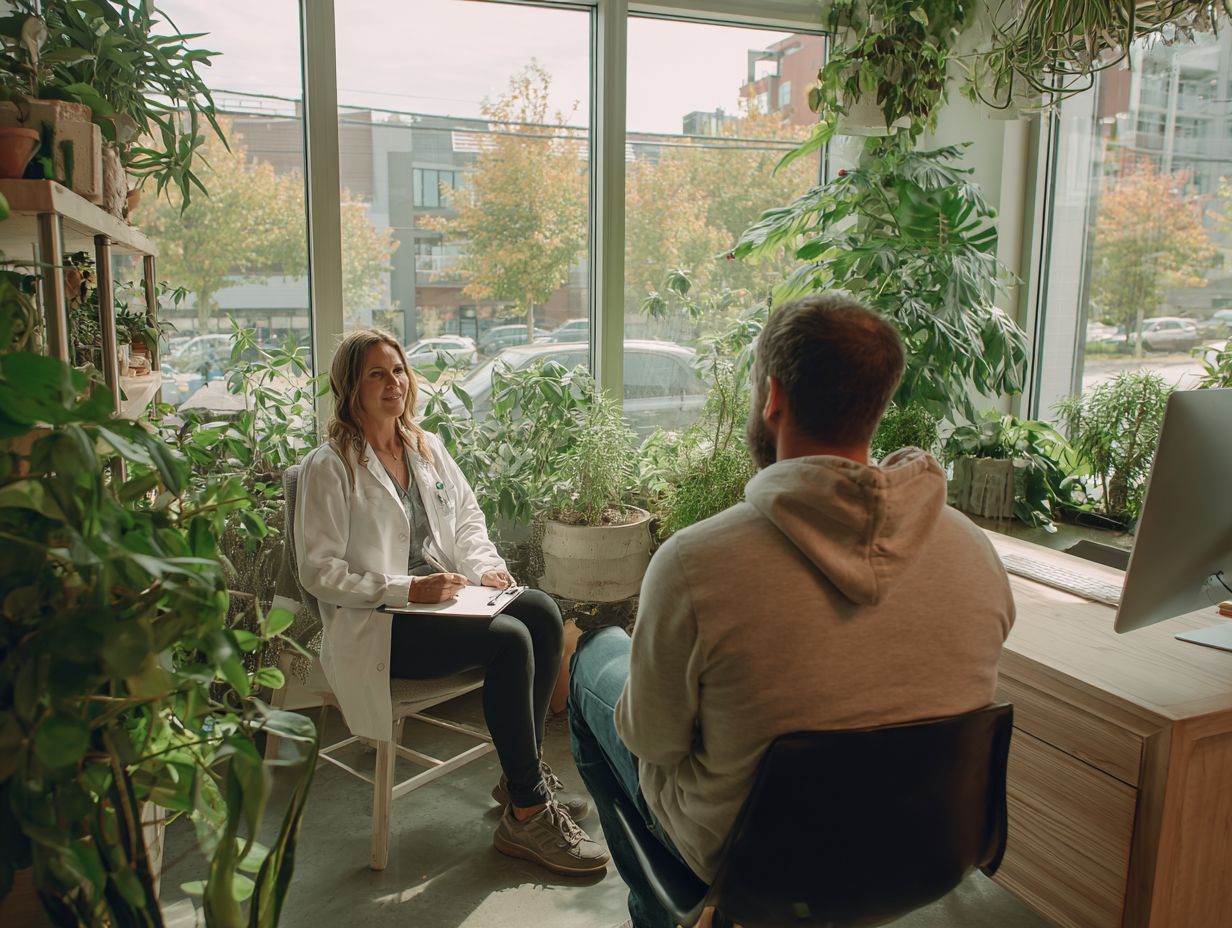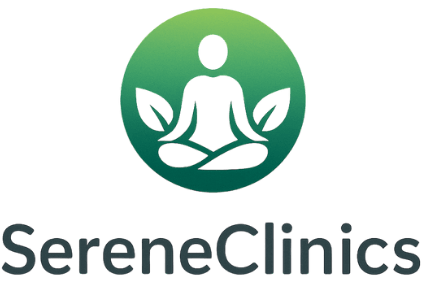How to Choose a Naturopathic Doctor? A Patient’s Guide
Picking the right naturopathic doctor is important for your health. These healthcare practitioners use scientific research and natural medical methods, including clinical nutrition, to support your well-being. In Ontario, it’s essential to find a licensed Naturopathic Doctor regulated by the College of Naturopaths of Ontario (CONO). This guide will help you choose the right option, making sure you make a well-informed decision that fits your specific health needs.
Key Takeaways:
Contents
- 1 Naturopathic Medicine Statistics
- 2 Understanding Naturopathic Doctors
- 3 Identifying Your Needs
- 4 Researching Potential Naturopathic Doctors
- 5 Evaluating the Doctor’s Approach
- 6 Meeting with Naturopathic Doctors
- 7 Assessing Compatibility
- 8 Making Your Decision
- 9 Frequently Asked Questions
- 9.1 What is naturopathic medicine and why should I consider seeing a naturopathic doctor?
- 9.2 How do I know if a naturopathic doctor is qualified and trustworthy?
- 9.3 What types of conditions can a naturopathic doctor treat?
- 9.4 How does a naturopathic doctor approach treatment?
- 9.5 Will naturopathic treatments be covered by my insurance?
- 9.6 What should I expect during my first visit with a naturopathic doctor?
What is Naturopathic Medicine?

Naturopathic medicine is a distinct healthcare practice that emphasizes prevention and the body’s inherent ability to heal itself, utilizing natural therapies such as herbal medicine and physical medicine.
Central to naturopathic medicine is the principle of treating the underlying cause of illness rather than just alleviating symptoms. Practitioners use different methods like nutrition, acupuncture, and homeopathy, customized for each person.
A patient with digestive problems might get advice on food choices and be given digestive herbs to improve gut health. Lifestyle factors are evaluated, emphasizing stress management and physical activity.
This method supports overall wellness, aiding patients in reaching lasting health benefits, aligning with broader holistic health practices.
Naturopathic Medicine Statistics
For those interested in a comprehensive overview of naturopathy, this analysis by Wikipedia covers the full spectrum of principles and practices involved.
Naturopathic Medicine Statistics
In recent years, the interest in alternative and complementary medicine has been rising. As highlighted by Hopkins Medicine, there are various types of alternative therapies being explored, ranging from herbal remedies to acupuncture. For those interested in herbal medicine specifically, our beginner’s guide to using herbal medicine safely provides essential insights.
Naturopathic Usage and Growth: Usage Statistics
International Usage: Presence Globally
Treatment and Conditions Statistics: Patient Characteristics
Treatment and Conditions Statistics: Common Conditions Treated
Naturopathic Medicine Statistics provides a complete look at the use, worldwide reach, and success of naturopathy as a healthcare option over twenty years. This data shows information about how naturopathy is used, its global spread, the types of patients, and the usual health issues it addresses, showing how naturopathy’s part in health care is changing.
Naturopathic Usage and Growth highlights a marked increase in U.S. adults using naturopathy, growing from 0.2% in 2002 to 1.3% in 2022. This growth shows more people are interested in whole-person and non-traditional healthcare choices. Factors contributing to this trend may include increased awareness of the benefits of natural remedies, dissatisfaction with conventional medicine, and a shift towards preventive care.
International Usage highlights naturopathy’s worldwide reach, with professionals in 98 countries, representing 36% of countries worldwide. This widespread adoption suggests international recognition of naturopathy’s potential benefits. It emphasizes the importance of cross-cultural research and teamwork to create effective naturopathic methods that fit different health environments.
- Patient Characteristics: Three out of four patients use naturopathy for long-term health issues., indicating its role in handling long-term illnesses. Moreover, 33% of patients have irregular visits, potentially reflecting episodic treatment needs, lifestyle-based therapies, or financial considerations impacting regular healthcare access.
Common Conditions Treated showcases naturopathy’s focus areas, with 18.5% addressing musculoskeletal concerns, such as back pain and arthritis, 12.2% dealing with gastrointestinal issues, and 11% treating mental illness. These statistics highlight naturopathy’s all-around method, combining treatments for physical, nutritional, and mental health.
The Naturopathic Medicine Statistics shows the increasing acceptance and use of naturopathy in healthcare systems and how it meets different health needs across the world. As more people focus on overall healthcare, knowing these changes helps create healthcare systems that focus on patients and provide lasting health solutions.
Benefits of Naturopathic Treatment
Patients who engage in naturopathic treatment often report improved emotional well-being and a reduction in chronic conditions, with studies indicating a 30% increase in patient satisfaction compared to conventional care. This aligns with findings from a study published on ResearchGate that explores the utilization and patient satisfaction associated with naturopathic medicine.
Naturopathic treatments focus on treating the whole person by using methods like herbal medicine, nutritional advice, and changes to daily habits. For a deeper understanding of these practices, discover the top techniques and therapies used in naturopathy, which can enhance patient outcomes.
For instance, patients might use chamomile tea for anxiety relief or adopt an anti-inflammatory diet rich in omega-3 fatty acids to alleviate chronic pain.
Research shows that these individualized treatment plans help patients by involving them in their health choices, which increases satisfaction and following the treatment.
Mobile health apps can monitor progress, allowing changes to be made to interventions when necessary.
Understanding Naturopathic Doctors
Naturopathic doctors are educated medical professionals who focus on natural treatments and overall health methods.
They need a lot of education and must meet strict licensing requirements.
Qualifications and Education

To become a licensed naturopathic doctor, candidates typically complete a four-year doctoral program at accredited institutions such as Bastyr University or the Canadian College of Naturopathic Medicine, followed by passing the NPLEX board exams.
Along with academic qualifications, those who want to become naturopathic doctors should think about internships or hands-on clinical experience for important practical training.
Schools such as the National University of Natural Medicine focus on practical experience in their courses, which can greatly improve the abilities of graduates.
Statistics show that approximately 1,000 students graduate annually from accredited schools, increasing competition within the field.
To secure licensing, candidates must achieve passing scores on both the NPLEX Part I and Part II, with preparation courses available through various organizations to help increase success rates.
Licensing and Regulation
In Ontario, naturopathic doctors need a license from the College of Naturopaths of Ontario (CONO), which sets practice standards and checks that professionals follow the rules.
Applicants must go through a demanding process that involves providing evidence of their education, passing the Naturopathic Physicians Licensing Examination, and showing they have the necessary clinical skills.
For instance, a candidate might face challenges in meeting the educational requirements if their program was not accredited by the Council on Naturopathic Medical Education.
Ongoing needs such as yearly continuing education credits and following the rules set by the Ontario Association of Naturopathic Doctors (OAND) help keep the profession honest and keep practitioners informed on the latest practices.
Identifying Your Needs
Knowing your personal health needs is important in choosing the right naturopathic doctor and treatment plan that fits your unique health path.
Assessing Your Health Goals
Start by setting specific health goals, like handling a long-term illness or improving health with lifestyle adjustments. These goals will help you choose the right naturopathic method.
Start by maintaining a health journal to track your symptoms, dietary habits, and emotional well-being; this helps in identifying patterns and triggers. For instance, a patient with diabetes might note how certain foods affect blood sugar levels.
Think about setting up routine meetings with healthcare professionals who can give personal guidance. If you want to manage your weight, set clear goals like losing 1-2 pounds each week, and look into natural approaches such as herbal supplements or changing your diet to help you reach your targets.
Understanding Your Health Conditions
Knowing your current health problems and getting the necessary tests helps a naturopathic doctor create effective treatment plans.
To get ready for your consultation, gather a complete health history. Include details about any ongoing illnesses, medications you take, and any allergies you have.
Be honest about lifestyle factors such as diet, exercise, and stress levels, as these can significantly impact your treatment. Bring your recent lab results or diagnostic tests; this helps us understand your health better.
Consider using a health journal to note symptoms, concerns, or questions over the weeks leading up to your appointment, which can facilitate a more productive discussion with the naturopath.
Researching Potential Naturopathic Doctors
Choosing the right naturopathic doctor requires careful research to make sure they match your health beliefs and treatment requirements. Understanding the education and regulations of licensed naturopathic doctors can further aid in making an informed decision, as explored in our article on Licensed Naturopathic Doctors: Definition, Education, and Regulations.
Finding Qualified Practitioners
Use the Ontario Association of Naturopathic Doctors (OAND) directory or visit local community health centers to find licensed practitioners nearby.
You can look at online sites like HealthProfs or Naturopathic.org, which have lists of licensed practitioners you can search through.
Asking for referrals from local pharmacies or healthcare providers can lead to trustworthy options. When checking a practitioner, make sure to verify their qualifications with provincial regulatory groups to confirm they meet the required standards.
It’s essential to check for specific licenses or certifications relevant to your needs, which can typically be verified via their websites.
Checking Credentials and Experience
Check the credentials, training, and experience of naturopathic doctors to find someone qualified to treat your specific health issues.
Begin by looking at their education history; recognized schools provide courses that guarantee basic knowledge. Look for at least five years of experience, which indicates ongoing practice with patients and growth of abilities.
Check their skills-some focus on treatments for long-term pain, while others specialize in cancer treatments that combine different methods. Accreditation by organizations such as the American Association of Naturopathic Physicians can also signal a commitment to professionalism.
For example, a doctor with a degree from Bastyr University and five years of experience in women’s health would be preferable over someone fresh from an unaccredited program.
Evaluating the Doctor’s Approach

Learning about a naturopathic doctor’s treatment methods and available therapies is important for choosing an approach that aligns with your health views.
Understanding Treatment Philosophy
Naturopathic doctors often focus on treating the entire person instead of just addressing specific symptoms. They use a combination of care methods that prevent illnesses and promote overall health.
This approach covers the patient’s mind, feelings, and body health.
For example, a naturopath might support a patient with chronic migraines by recommending:
- dietary changes
- stress-reduction techniques like yoga
- herbal supplements such as feverfew
Success stories support this; a patient shared that their life got better after starting a custom lifestyle program that included acupuncture and nutrition advice. These combined methods demonstrate how naturopathic ideas can be used to improve health and support self-healing.
Types of Treatments Offered
Naturopathic doctors use various treatments such as herbal medicine, acupuncture, physical therapy, and lifestyle advice, customized for each patient.
Herbal medicine is often used for treating conditions such as digestive issues and stress, with studies showing up to a 67% improvement in symptoms for users of specific herbs.
Acupuncture can effectively address chronic pain, boasting a success rate of around 70% in relieving discomfort.
Physical medicine focuses on rehabilitation and pain management, helping approximately 60% of patients regain mobility.
Lifestyle counseling aids in chronic disease prevention and is linked to improved health outcomes in up to 75% of clients, emphasizing nutrition and exercise.
Meeting with Naturopathic Doctors
Meeting with a naturopathic doctor for the first time allows you to work together on your health and what you want to achieve.
Preparing for Your First Appointment
To maximize the effectiveness of your first appointment, gather your health history, including previous treatments, medications, and lifestyle factors that may influence your care.
Prepare a list of current symptoms and questions you might have. This could include details about any allergies, family medical history, and specific concerns related to your health.
Organizing this information will help your healthcare provider focus on your specific needs during the evaluation.
Try using a health app like MyChart to keep track of your records and make sure you don’t miss any important information during the appointment.
Questions to Ask During the Consultation
During your consultation, asking the right questions can help clarify the doctor’s approach, ensuring it aligns with your health objectives and comfort level.
Ask them about their treatment philosophy: ‘How do you care for patients?’ This helps understand their view on working together.
Discuss expected outcomes by asking, ‘What results can I realistically anticipate from this treatment?’ Clarify communication style with a question like, ‘How do you prefer to update patients on their progress?’
Adjusting your questions to these topics helps you connect with your doctor and makes sure you both agree on your medical care plan.
Assessing Compatibility
Feeling comfortable with a naturopathic doctor helps create trust, supporting recovery.
Communication Style
The way a naturopathic doctor communicates greatly affects how much control patients feel over their health and how well the treatment works. Open conversation encourages working together.
To evaluate a doctor’s communication effectiveness, consider these key aspects during your first visit:
- Observe how actively they listen by noting their eye contact and responsiveness to your concerns.
- Ask open-ended questions, such as ‘Can you explain more about my treatment options?’ to assess their clarity in explanations.
- Check if they are open to including you in decisions by talking about side effects or other treatment options.
How a doctor answers these questions shows their dedication to working together and affects your trust in the treatment process.
Comfort and Trust Level

Feeling comfortable and confident with a naturopathic doctor can improve treatment results. Think about how you feel about this during your first appointments by considering how your meetings go.
Pay attention to how your doctor listens and answers your questions, as this can set the tone for your relationship. Take note of their explanation of treatment options; clarity can indicate their confidence and willingness to collaborate.
After the consultation, reflect on your gut feeling-did you feel heard and understood? Trustworthy signs might include a welcoming demeanor and genuine interest in your concerns.
If you notice any warning signs like dismissive behavior, consider asking for another opinion; your comfort is important for proper recovery.
Making Your Decision
Choosing your healthcare needs personal thought, where you carefully weigh your choices and trust your gut feeling about a naturopathic doctor.
Evaluating Your Options
- Compile a list of potential naturopathic doctors and evaluate them based on your established health goals, treatment preferences, and personal comfort levels.
- Begin your search by visiting reputable directories like the American Association of Naturopathic Physicians (AANP) or local health forums for reviews.
- Create a table comparing candidates on criteria such as specialties (e.g., herbal medicine vs. acupuncture), patient reviews, and distance from your home.
- Schedule initial consultations to assess their communication style and how comfortable you feel discussing your health concerns.
- Remember, a good fit is as important as credentials. After consultations, consider which practitioner best matches your overall health goals.
Trusting Your Instincts
Trusting your own feelings is important when choosing a naturopathic doctor, as your comfort and communication with them can greatly affect your healing process.
To help you decide, set up first meetings with various experts. During these visits, assess their communication style and attentiveness.
Ask about their treatment philosophies, as well as success stories with similar conditions to yours. For instance, if you’re dealing with chronic pain, a doctor specializing in pain management techniques could be more suitable.
It’s important to feel comfortable with your choice. If something doesn’t seem right, it’s fine to keep looking until you are sure about what you decide.
Frequently Asked Questions
What is naturopathic medicine and why should I consider seeing a naturopathic doctor?
Naturopathic medicine is a form of alternative medicine that focuses on natural remedies and the body’s ability to heal itself. Unlike standard medicine, which usually focuses on symptoms, naturopathic medicine focuses on finding the underlying cause of health problems and improving general health. Visiting a naturopathic doctor can provide a unique and complete way to manage your health.
How do I know if a naturopathic doctor is qualified and trustworthy?
When choosing a naturopathic doctor, it’s important to do your research. Find a certified professional who has finished a four-year program in naturopathic medicine and passed a national board test. You can also check for any disciplinary actions or complaints against the doctor.
What types of conditions can a naturopathic doctor treat?
Naturopathic doctors can treat a wide range of acute and chronic conditions, including allergies, digestive issues, hormonal imbalances, and autoimmune diseases. They can also provide preventive care to help maintain overall health and wellness.
How does a naturopathic doctor approach treatment?
A naturopathic doctor usually spends extra time with a patient during the first meeting to collect details and make a custom treatment plan. This plan may include a combination of natural therapies, such as herbal medicine, nutrition, and lifestyle changes, to address the underlying cause of health issues.
Will naturopathic treatments be covered by my insurance?
It depends on your specific insurance plan. While some insurance companies do cover naturopathic treatments, others may not. It’s best to check with your insurance provider beforehand and discuss payment options with your naturopathic doctor.
What should I expect during my first visit with a naturopathic doctor?
Your first visit with a naturopathic doctor will likely be longer than a typical doctor’s appointment. The doctor will ask about your medical history, current health concerns, and lifestyle habits. They may also order lab tests or physical exams to gather more information. Be prepared to discuss your goals and expectations for treatment.

Sheetal Sharda has a background in CS. She got an interest in Holistic living back in 2018, and has since started exploring more into Naturapathy, Holistic Living, Yoga, and more. She got inspired to start SereneClinics to help people find reliable centers across the world.






